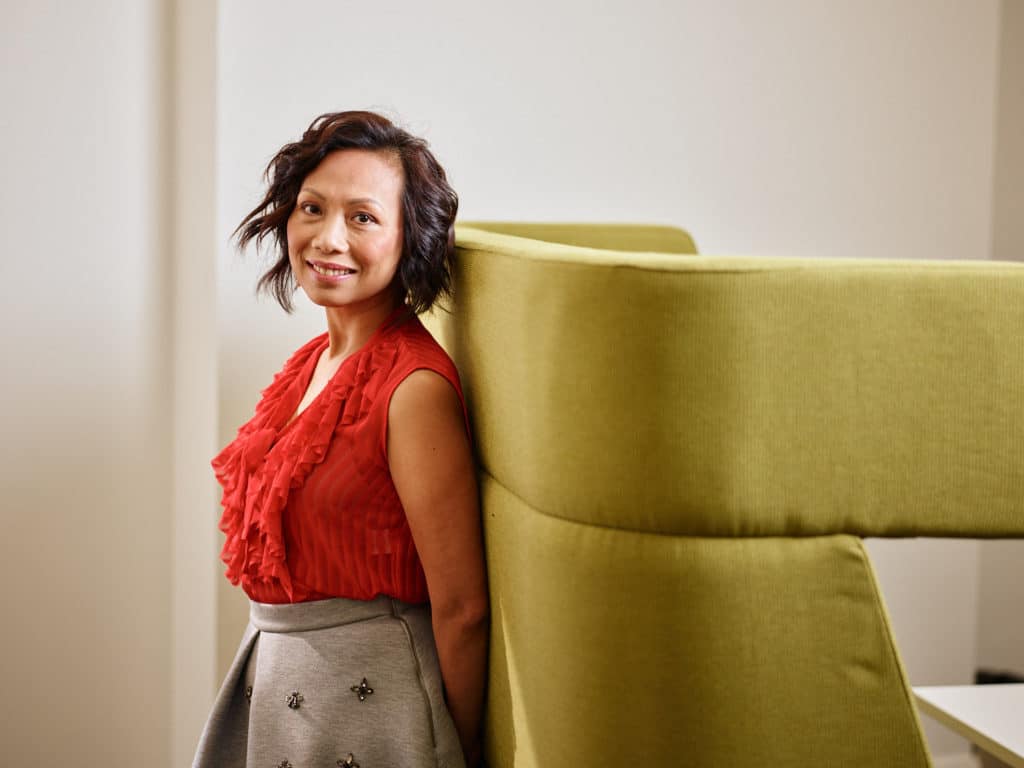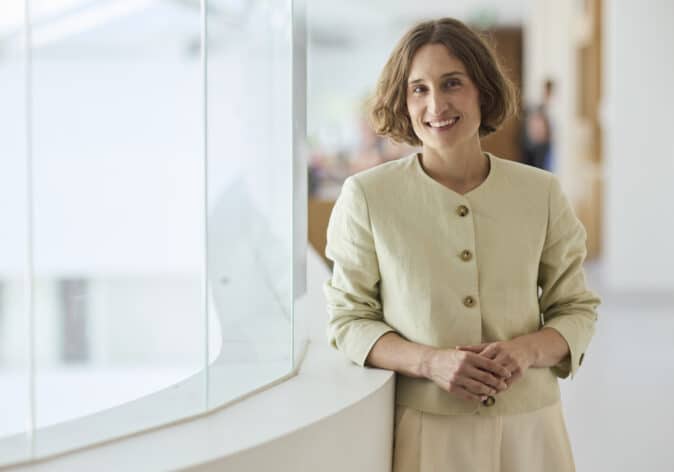Being Diagnosed With Breast Cancer
Dai Le is a successful businesswoman and politician. She is also a strong advocate for women, especially those from diverse backgrounds.
And after her breast cancer diagnosis in 2014, she became a breast cancer awareness advocate.
Dai is the founder of DAWN – an organisation that champions diverse leadership beyond gender and is also a Fairfield Councillor.
As she was fit and led a healthy life, she said her diagnosis came as a shock.
“It was October 2014.”
“I had just finished doing yoga and there was this little voice inside my head that said check your breasts.”
“As soon as I touched my left side, I discovered a little lump.”
“It was hard, and I thought ‘that’s unusual’ and I went and checked my right arm, under the armpit and there was nothing there,” she said.
“I went back and checked again on the left and I thought it felt like a pea but I thought it can’t possibly be because I exercise regularly, I don’t drink, I don’t smoke, I believe I eat really healthy.”
Dai said she called her doctor the next morning.
“She said ‘don’t panic, you’re still young, no history of cancer in the family, don’t worry’.”
“She sent me to do a biopsy.”
“The next day I got a call, and the receptionist said can you come and see the doctor today and I said sure, but I finish late.”
“She said, ‘It doesn’t matter, she’ll wait for you.’”
Dai said she went to her Doctor’s office after work with her husband.
“I opened the door and walked in, because she was waiting for us we were the only patients there and as soon as I walked in she turned around and she said ‘I’m so sorry, but you’ve got blah blah blah – whatever the actual scientific name of it was – and all I heard was cario-something – so I sat down, and my husband sat down and you could hear a pin drop.”
“No one said anything.”
“The poor doctor was so emotional, I said ‘OK, what’s going to happen, what does it mean, what should we do now, I want to address it now.’”
“Then my husband said, “How are we going to tell our son.”
Listen to the podcast
Advocate Dai Le speaks with us about the impact her diagnosis has had on her life, how she explained her diagnosis to her son and the importance of spreading breast cancer awareness in non-English speaking communities.
Telling Your 11-Year-Old Son You Have Cancer
Dai said telling her 11-year-old son that she had breast cancer was the hardest conversation of her disease.
“So, we said to him, “I’m sick’ and I was trying not to get emotional and he looked, because at that stage I hadn’t had my first treatment yet, so I didn’t look like I was sick, but I said, I’m sick.”
“But we said we believe I’m going to be cured, I’m going to get treatment for it.”
“And I could see him thinking what kind of sickness I have got, and I said, I’ve got cancer.”
“I remember his breath in, and I could see the shock, and he held his breath, and I said, ‘but I’m going to be OK, I’m going to fight this and I’m going to be around’.”
Dai and her husband assured their son that it was no one’s fault and asked if they could speak to his class so they could give him the appropriate support needed while she underwent treatment.
But to her surprise he pushed back on this.
“He said ‘No, don’t’.”
“I asked why, and he said ‘Mum, because there is this girl in class and her mother just died of cancer. If you go and talk about your cancer and your there and her mother’s not there, it might bring back memories for her.’”
Dai agreed with her son and spoke only to his teacher and principal at school so they could be aware of his circumstances in case of any behavioural changes.
Becoming A Breast Cancer Advocate For All
Dai decided to leave full time work after her treatment.
“In the back of my mind I was thinking, do I have 12 months, do I have five years.”
“I caught it early and I think with my type of cancer there’s an 85% chance of survival, which is a very high.”
“But it didn’t stop me from thinking where I will be in 12 months’ time or two years’ time.”
“So, in 2015 when I finished treatment, I thought, what can I do that will enable me to be productive and contributing back and educating people?”
“As a result of that I formed DAWN the group and started doing voluntary work and running those conversations.”
Dai said she was open about her diagnosis and treatment which has allowed her a greater platform to help educate.
“There’s not many women like myself of coloured or ethnic background, who would talk about it willingly and openly.”
“By me doing that, actually a lot of other women, reached out to me privately,” she said.
“For some women I’ve discovered, even when they have the lump, they just ignore it, they don’t want to do anything, until it becomes such a big lump and as a result some of them die.”
“So, I hear the stories like that and it’s quite frightening that women of non-English speaking backgrounds do not talk about, do not go and see their doctors, are too embarrassed to even share it with their family members.’”
“I continue still to drive the conversation through my activities and I still talk about breast cancer, that I’m a survivor.”
Support Us
Help us to change lives through breast cancer clinical trials research



